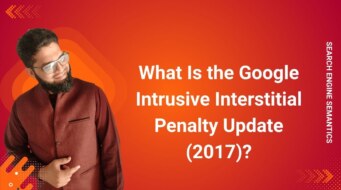What Is Link Building?
Link building is one of the most influential pillars of Search Engine Optimization (SEO) because it directly impacts how search engines evaluate authority, trust, and relevance. In semantic SEO terms, links are not merely pathways between pages—they are relationship signals that help search engines understand how entities, documents, and domains connect within a broader semantic content network.
At its core, link building is the process of earning or acquiring a backlink—a hyperlink from another website pointing to your page. Each backlink acts as a contextual endorsement, passing link equity and helping search engines determine which pages deserve visibility in competitive search engine result pages (SERPs).
However, modern link building is no longer about volume. It operates at the intersection of authority sites, editorial relevance, and semantic alignment, working alongside content marketing, technical SEO, and on-page SEO to form a sustainable ranking ecosystem.
Why Link Building Still Matters?
Despite the rise of AI-driven ranking systems, link building remains a foundational ranking signal because it helps search engines measure trust at scale. While Google’s algorithms now incorporate entity-based SEO, user engagement, and contextual relevance, links still function as external validation signals that cannot be easily fabricated.
From a semantic perspective, backlinks help search engines:
Discover new URLs through efficient crawlability
Evaluate search engine trust
Consolidate authority via PageRank flow
Understand topical relationships across domains
Even with updates like Helpful Content Update and increased reliance on E-E-A-T principles, backlinks continue to serve as confidence signals—especially for competitive, commercial, and YMYL pages.
This is why link building still directly influences search visibility, organic rankings, and long-term organic traffic growth.
Primary Benefits of Link Building
Link building supports SEO at multiple layers—not just rankings, but discovery, trust, and engagement.
1. Improved Rankings Through Authority Transfer
High-quality backlinks from an authority site pass trust signals that strengthen both domain authority and page authority. This increases your ability to rank for competitive keywords without relying on aggressive keyword density tactics.
2. Referral Traffic With Intent Alignment
Links placed within editorial content generate referral traffic from users already interested in your topic. This improves engagement rate, dwell time, and overall content usefulness.
3. Credibility and Brand Trust
Mentions and links from trusted sources reinforce expertise and authority, aligning with knowledge-based trust signals that search engines use to validate factual accuracy and reliability.
4. Faster Indexing and Crawl Efficiency
Search engines discover new pages through links, improving indexing speed and supporting better crawl efficiency—especially for deep or newly published content.
Each of these benefits compounds when link building is aligned with keyword research, topical maps, and a strong internal architecture.
How Search Engines Evaluate Backlinks?
Not all backlinks are equal. Search engines evaluate links through multiple semantic and structural lenses to determine their real value.
Core Backlink Evaluation Factors
Relevance
A link from a contextually aligned page carries more link relevancy than a generic or unrelated source.Authority
Pages with a strong link profile pass more trust than low-quality or thin domains.Placement
Editorial links embedded within content outperform site-wide links or footer placements.Anchor Text Naturalness
Overuse of exact match anchor text triggers over-optimization risks. Natural anchors signal authenticity.Link Diversity
A healthy backlink profile maintains link diversity across domains, attributes, and content types.
Together, these signals prevent ranking signal dilution and help search engines assess genuine authority.
Common Link Attributes
Understanding link attributes is critical for maintaining a natural and penalty-safe profile.
Dofollow links
Pass ranking signals and link equity.Nofollow links
Do not pass authority directly but support traffic, branding, and profile balance.Sponsored links
Used for paid placements to comply with Google Webmaster Guidelines.User-generated content links
Lower authority but useful for diversification and authenticity.
Correct attribute usage protects against manual actions and algorithmic penalties.
Types of Links Used in Link Building
A sustainable link-building strategy uses multiple link types to create a natural authority footprint.
1. Organic / Editorial Links
These are earned naturally when content is cited as a resource. They often result from evergreen content, original research, or expert-level guides and represent the strongest trust signals.
2. Outreach-Based Links
Acquired through email outreach, partnerships, or collaborations. When value-driven, outreach links remain highly effective without triggering spam signals.
3. Guest Posting
Publishing on external platforms through guest posting provides contextual backlinks when editorial standards are respected and link farms are avoided.
4. Internal Links
Strategic internal links distribute link equity, prevent orphan pages, and strengthen SEO silos.
5. Manual & Local Links
Includes local citations, directories, and niche listings—important for local SEO and NAP consistency.
Each link type plays a different role in building topical authority and trust.
Modern Link-Building Strategies That Works
Link building in 2025 has evolved into a credibility-first, relationship-driven discipline. The focus is no longer on link accumulation, but on earning contextual authority that aligns with how search engines evaluate meaning, trust, and topical depth.
Modern strategies succeed when they reinforce topical authority, support semantic relevance, and integrate naturally within a site’s broader content configuration.
Authority Content and Data-Led Link Earning
The strongest links today are not requested—they are earned. Data-driven assets act as link magnets when they provide unique information gain and real-world value.
High-performing authority assets include:
Original research and industry surveys
Expert roundups and opinion-led content
Interactive tools and calculators
Comprehensive cornerstone and expert documents
These assets often attract editorial links organically, especially when supported by digital PR and journalist platforms like HARO.
From a semantic standpoint, such content strengthens topical coverage and reinforces entity-level trust across your domain.
Broken Link Building and Link Reclamation
Broken link building remains one of the most ethical and scalable tactics when executed with relevance and precision.
The process involves:
Identifying broken links on authoritative pages
Offering your content as a contextual replacement
Helping publishers fix link rot
Closely related is link reclamation—recovering lost or unlinked brand mentions. These methods improve your link profile without introducing unnatural acquisition patterns.
Competitor Backlink Analysis for Strategic Gaps
Reverse-engineering competitor authority is a powerful way to identify link opportunities aligned with proven ranking success.
Using tools like Ahrefs, Semrush, or Moz Pro, you can:
Analyze competitor link popularity
Identify shared referring domains
Detect content formats that attract links
When paired with content gap analysis, this approach helps you build links that support ranking signal consolidation rather than dilution.
Content Hubs, Topic Clusters, and Internal Authority Flow
External links amplify authority, but internal links distribute it.
By organizing content into topic clusters and reinforcing them with strategic SEO silos, you create a clear contextual hierarchy that search engines can easily interpret.
This structure:
Prevents keyword cannibalization
Strengthens topical authority
Improves crawl paths and internal PageRank flow
In semantic SEO, internal links function as entity connectors, reinforcing meaning across documents.
Local Link Building and Geographic Trust Signals
For businesses targeting geographic intent, local link building is non-negotiable.
Effective local strategies include:
Consistent local citations
Partnerships with local publishers
Community sponsorships and events
These links strengthen local search signals and improve visibility in Google Maps and local SERPs, especially when paired with strong NAP consistency.
Resource Page and Editorial Link Building
Resource pages exist to link out—and that makes them ideal targets.
When your content:
Solves a specific problem
Adds depth missing from existing resources
Demonstrates topical expertise
…it naturally earns editorial links. These links are among the most trusted because they are contextually placed and user-focused.
What Makes a High-Quality Backlink?
Search engines evaluate backlinks with increasing precision. A high-quality backlink typically includes:
Strong link relevancy to the page topic
Natural anchor text variation
Editorial placement within meaningful content
A clean, authoritative referring domain
Contribution to link diversity
At the URL level, authority is measured through page authority, not just domain strength. High-quality backlinks also support behavioral metrics like dwell time and engagement rate, reinforcing content usefulness.
Risks and Penalties: What to Avoid in Link Building
Manipulative practices are more dangerous than ever. Common risk factors include:
Link farms and PBNs
Excessive reciprocal linking
Overuse of exact match anchors
Buying paid links without disclosure
Sudden unnatural link velocity
These practices can trigger algorithmic penalties or manual actions, requiring cleanup through disavow links and reconsideration requests.
How Link Building Supports Semantic SEO
Link building plays a direct role in semantic interpretation.
When backlinks point to well-structured content supported by structured data, topical maps, and consistent internal linking, search engines can:
Identify core entities
Map entity connections
Validate knowledge graph relationships
This alignment strengthens entity-based SEO, improves semantic relevance, and helps your site function as a trusted knowledge domain rather than a collection of isolated pages.
Frequently Asked Questions (FAQs)
Is link building still a ranking factor ?
Yes. Backlinks remain one of the strongest external signals supporting search engine trust, especially when combined with high-quality content and user engagement.
Are nofollow links useless?
No. Nofollow links contribute to traffic, brand visibility, and link profile naturalness—even if they don’t pass direct authority.
How many backlinks do I need to rank?
There is no fixed number. Rankings depend on link quality, topical relevance, competition, and how well links integrate with your content architecture.
Can internal links replace external backlinks?
Internal links strengthen authority distribution but cannot replace external trust signals. Both work together within a holistic SEO system.
What’s the safest link-building approach?
Creating valuable content, earning editorial mentions, maintaining link diversity, and avoiding manipulative tactics aligned with white-hat SEO principles.
Final Thoughts on Link Building
Link building has not disappeared—it has matured.
In 2025, sustainable success comes from:
People-first, expert-driven content
Ethical outreach and digital PR
Diverse, natural link profiles
Semantic topical alignment
Strategic internal linking
When backlinks reinforce meaning, trust, and topical authority, they become long-term growth assets—not ranking hacks.
Want to Go Deeper into SEO?
Explore more from my SEO knowledge base:
▪️ SEO & Content Marketing Hub — Learn how content builds authority and visibility
▪️ Search Engine Semantics Hub — A resource on entities, meaning, and search intent
▪️ Join My SEO Academy — Step-by-step guidance for beginners to advanced learners
Whether you’re learning, growing, or scaling, you’ll find everything you need to build real SEO skills.
Feeling stuck with your SEO strategy?
If you’re unclear on next steps, I’m offering a free one-on-one audit session to help and let’s get you moving forward.
Table of Contents
Toggle


